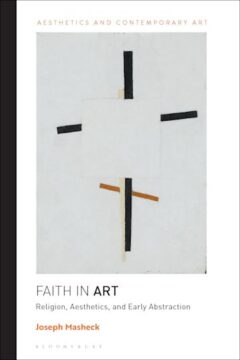Jonathan Anderson at Artforum:
 In the end, Faith in Art offers neither comprehensive views of these artists nor definitive conclusions about the religious bearings of their work. Nor is it concerned with establishing these artists’ faithful (or unfaithful) adherence to particular religious traditions—indeed, “none was religious in any conspicuous way.” Rather, Masheck seeks to show how “they believed that art had something formative to say about the possibility of a new, more humane society, by a faith ultimately based on scriptural, and sometimes surprisingly theological, intellectual formations.” This effectively pries open the critical histories of these artists, such that reducing these formations to either “materialism” or “spiritualism” becomes untenable.
In the end, Faith in Art offers neither comprehensive views of these artists nor definitive conclusions about the religious bearings of their work. Nor is it concerned with establishing these artists’ faithful (or unfaithful) adherence to particular religious traditions—indeed, “none was religious in any conspicuous way.” Rather, Masheck seeks to show how “they believed that art had something formative to say about the possibility of a new, more humane society, by a faith ultimately based on scriptural, and sometimes surprisingly theological, intellectual formations.” This effectively pries open the critical histories of these artists, such that reducing these formations to either “materialism” or “spiritualism” becomes untenable.
A thread running throughout Masheck’s chapters is his intuition of a deeply dialectical reasoning among these artists—one in which the overcoming or (sur)passing of religious positions results not in their elimination but in their incorporation into further syntheses. Competing Hegelianisms thus play throughout the book, as Masheck criticizes modernist historians for being “insufficiently dialectical about religion,” insofar as they presume religion to be irrelevant or “inadmissible” (à la Krauss’s “Grids”) rather than complexly sustained in larger dialectical patterns.
more here.
